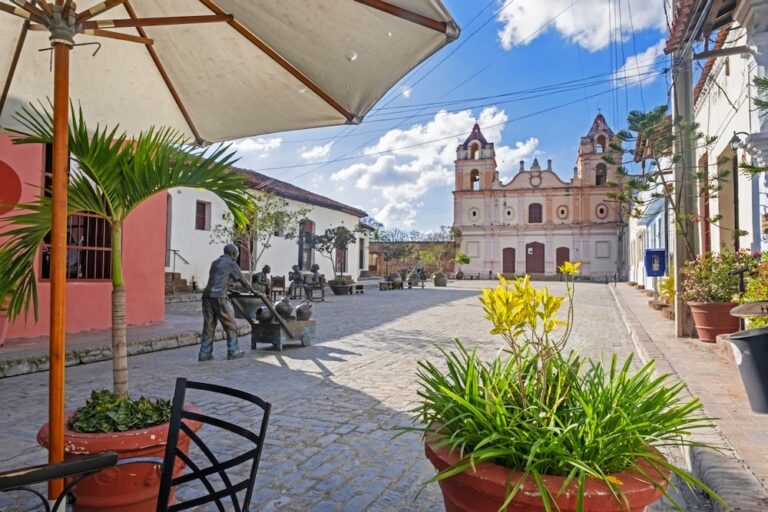(IAPA/IFEX) – The following is a 23 May 2003 IAPA press release: IAPA asks government leaders, during their visit to Argentina, to intercede with Castro to free jailed independent journalists in Cuba New wave of threats, warnings protested MIAMI, Florida (May 23, 2003) – The Inter American Press Association (IAPA) today asked Western Hemisphere governments […]
(IAPA/IFEX) – The following is a 23 May 2003 IAPA press release:
IAPA asks government leaders, during their visit to Argentina, to intercede with Castro to free jailed independent journalists in Cuba
New wave of threats, warnings protested
MIAMI, Florida (May 23, 2003) – The Inter American Press Association (IAPA) today asked Western Hemisphere governments to intercede with Cuban President Fidel Castro to obtain the release of jailed journalists and dissidents in his country and to put an end to a wave of threats against other independent journalists who continue working in Cuba.
The IAPA’s special request comes at the time of the inauguration in Buenos Aires this Sunday of Argentine President Néstor Kirchner, which will be attended by the majority of government leaders from throughout the Americas, among them Cuba’s Castro.
IAPA President Andrés García publicly called on the governments “to take this opportunity to express to President Castro not only the need for democracy in Cuba, but also that the right to write and express an opinion must be guaranteed.”
The IAPA request is part of a series of representations the organization has been making to governmental and international agencies in its attempt to secure the release of 75 prisoners, mostly political opponents of the Castro regime, serving prison terms of up to 27 years. Twenty-eight independent journalists are among those imprisoned. Among them is journalist Raúl Rivero, sentenced to 20 years’ imprisonment, a member of the IAPA’s Board of Directors and the vice chairman for Cuba of the organization’s Committee on Freedom of the Press and Information.
Since the wave of oppression was unleashed in March, and because of prior harassment of the independent press, the IAPA has been criticizing the timid attitudes of some governments towards the Castro regime.
García, editor of the Cancún, Mexico newspaper Novedades de Quintana Roo, also urged governments in the Americas to take up with Castro the issue of a new campaign of repression against the independent press in Cuba. The IAPA has become aware that 12 independent reporters who are continuing to write for various publications around the world have received warnings from State Security in recent days that they should stop writing or face imprisonment.
The journalists concerned are Tania Quintero, Fara Armenteros, Luis Cino, Ana Leonor Díaz, Claudia Márquez Linares, Gilberto Figueredo, Manuel Antonio Brito, Ernesto Roque and Iván García in Havana; Ada Márquez from Guantánamo, now living temporarily in Havana; María Elena Alpizar Plazetas in Villa Clara, and Rafael Ferro in Pinar del Río.
Iván García, of the independent news agency Cuba Press, was called in for questioning by agent Jesús Aguila and another State Security official, who warned him to stop writing or face the choice of leaving the country. Otherwise, García was warned, he would be charged under Law 88 of complicity in a foreign spy network.
García was also warned that the next time he was called in it would be “a different matter” – meaning that he could face imprisonment.


